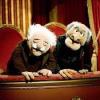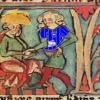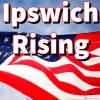| Any TWTDs interested in ancestry DNA researching and results? 01:38 - Jul 27 with 1344 views | floridablue |
OK, short story about my reasons for asking as I'm a Dual national British/American due to my father being in the US Air force based in Suffolk 1950s. I Joined and summited samples to all the ancestry sites which gave me info on close cousins on both sides of the pond. Now living in USA, Florida through all the available ancestry sites, I've discovered my American born fathers lineage goes back to mid 1700s Virginia where the revolution (obviously Boston as well} got underway. Confirmed beyond doubt as I now have a certificate to confirm my American ancestor fought against the British!
Where I would like help is to find out names and ranks of the British troops who fought in the conflict to see if I have anyone in my mothers maternal lineage involved.
I'm surprised how easy it's been to discover my American lineage compared to my British....why should that be?? |  | | |  |
| Any TWTDs interested in ancestry DNA researching and results? on 05:01 - Jul 27 with 1212 views | Benters |
Maybe because compared to England America is a newish country,by that I mean the year the white man started taking over the injun tribes etc.
I am speaking of my own experiences of tracing my family tree on my father’s side from Wales with a common Welsh name was a nightmare.But on my Mother’s side in Suffolk and Essex was pretty easy..
They also say in this part of the world North Essex /Tendring if you can trace your family back to the 1880s,you will all be related.As I find out in Benters I have loads and I mean loads of cousins that I didn’t know I had,some are a close others not so but we are all linked. |  |
|  |
| Any TWTDs interested in ancestry DNA researching and results? on 08:10 - Jul 27 with 1123 views | Churchman |
That’s fascinating, even if that does make you a traitor from a family of traitors. America will always be a colony to me.
Right, back in reality, well done getting back as far as you did with it and discovering what you have. It sounds like the DNA sampling really made a difference. A friend of mine showed me his ancestry ‘sheet’ the other day and that stirred a bit of interest. I ought to give it a go.
I’ve done a little bit of digging using the Ancestry website and while I can get back to the 18c on both sides, the trail goes cold on my mothers side and vague/uncertain on my father’s. Part of the reason is spelling in that names and words beyond a certain point were often spelt as they sounded.
I’m sure somebody trained in this stuff would make a far better job of it than me. Another element is names. My surname means ‘bright heart’ or ‘shining heart’ and has roots in Norman French but German origins.
As a non-trade name (like say a Smith, Cooper or Draper), I suspect some ancestor from long past rocked over with the Norman invasion - some minor Brave Sir Robin (Holy Grail character who soiled his armour) nobody. The Americans, one of whom wrote a book on people with my surname reckoned they all stemmed from one of the Lothbrok brothers of Viking fame, but that is a lot of old twaddle of course. All good fun.
Thanks for encouraging me to do the DNA thing. I know there’s a smidgeon of Welsh in there somewhere and suspect plenty of Anglo Saxon but I haven’t a clue really. |  | |  |
| Any TWTDs interested in ancestry DNA researching and results? on 10:10 - Jul 27 with 993 views | Guthrum |
I think part of the problem may be down to cultural aspects of how the men who fought in the American War of Independence were viewed.
Those fighting against British rule had played a role in the establishment of a nation. It was a source of local pride and thus worthy of being recorded.
On the other hand, those fighting for King George were merely soldiers in a beaten army (in an era when individual records were not considered important*). Many of them were Germans, hired for their military expertise and to boost manpower. "Tories", colonists who sided with Britain, generally wanted to keep their heads down after the war, for fear of social and economic repercussions. Quite a number relocated to Britain or Canada. Nobody wanted to shout about having fought against the new government(s) and their victorious neighbours.
You might have some joy if they served as regular officers in the British Army, but otherwise you are reliant upon family traditions (not necessarily reliable) and mentions in letters or newspaper reports.
On the DNA note, those tests are the ones which interest me most, proving a close link with lineages where one can't find or prove a link through records. Rather than the pseudo-specific "you're 75% Saxon/20% Celtic/5% Viking" variety which rely on really rather wooly genetic classifications of ancient/early medieval populations.
* Indeed, officers falsifying numbers to claim extra pay and supplies for themselves was not uncommon. |  |
|  |
| Any TWTDs interested in ancestry DNA researching and results? on 14:51 - Jul 27 with 877 views | Kropotkin123 |
I'm not sure about that specifically, but I know that many records were destroyed by fire and the blitz in ww2. I did a very quick search to make sure it wasn't told to me in error. It highlighted that info from ww1 was greatly impacted. So it may be worth researching if anything happened to the dataset first. [Post edited 27 Jul 17:42]
|  |
| Submit your 1-24 league prediction here -https://www.twtd.co.uk/forum/514096/page:1 - for the opportunity to get a free Ipswich top. | | Poll: | Would you rather | | Blog: | Round Four: Eagle |
|  |
| Any TWTDs interested in ancestry DNA researching and results? on 18:30 - Jul 27 with 754 views | PhilTWTD |
My great-great-great-great-great grandfather was killed at the Battle of Bunker Hill. I assume he was fighting for the British, but not entirely sure of that. |  | |  |
| Any TWTDs interested in ancestry DNA researching and results? on 19:53 - Jul 27 with 691 views | Coastalblue |
I did a DNA thing a few years ago, and it was fun but also a little frustrating.
The fact I came up something like 45% English, what the hell is English?
I had the predictable Welsh/Irish/Scottish and Scandanavian in there, but it also gave me some Italian which I have no idea where that comes from.
It was also good for winding up the missus as I was as Scottish as her, a Scot. |  |
|  |
| |